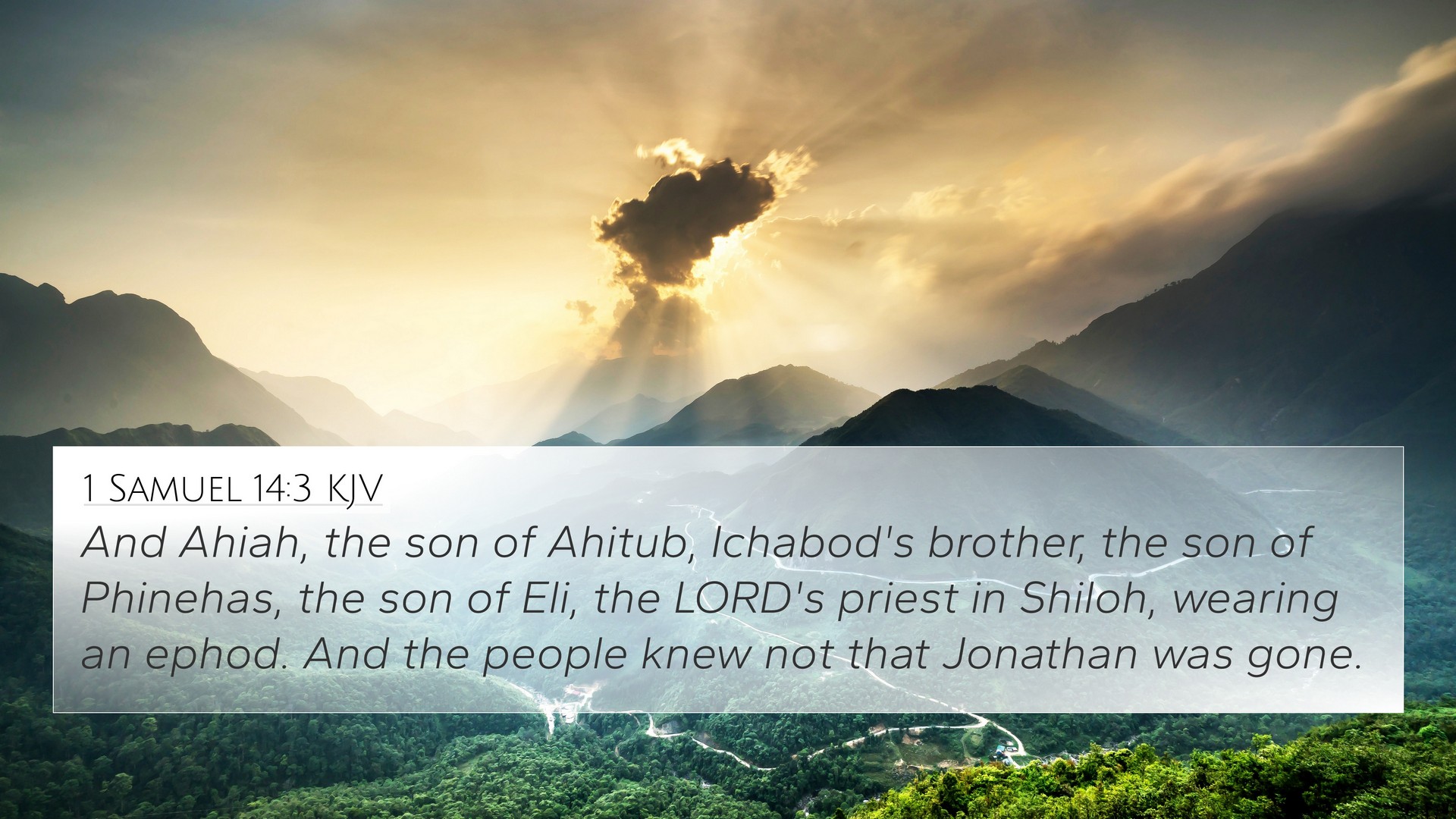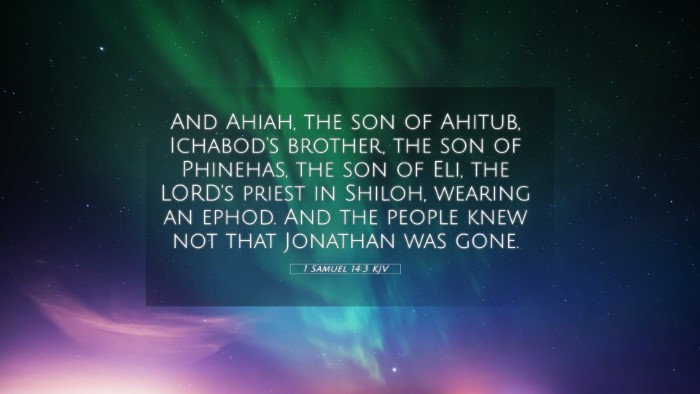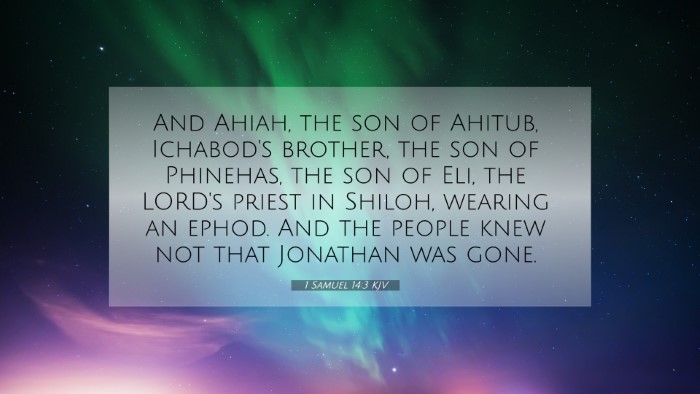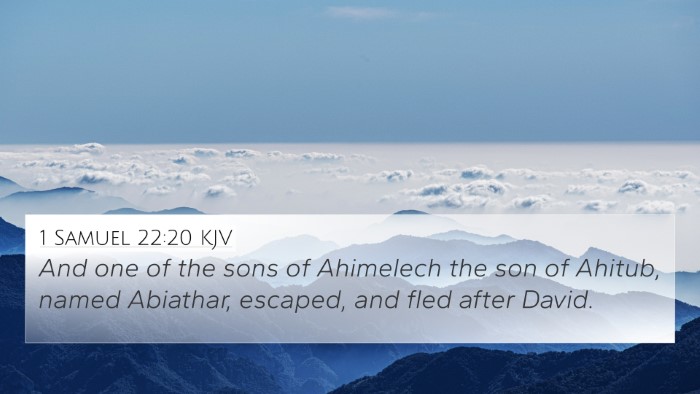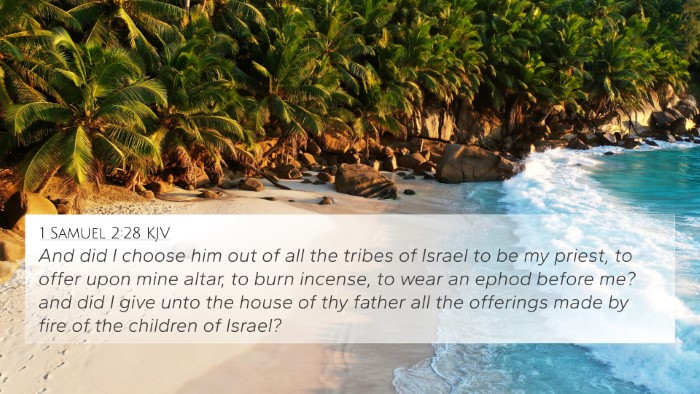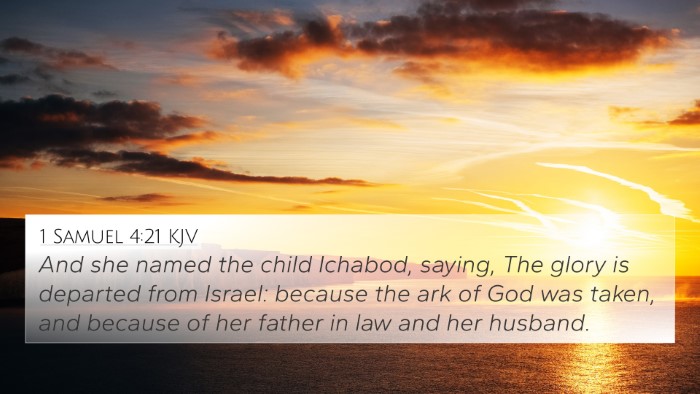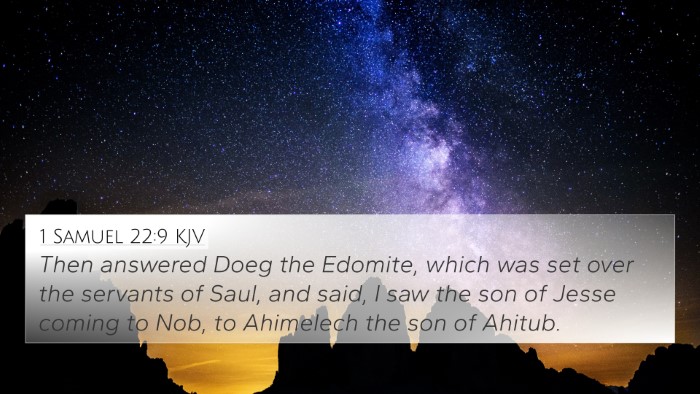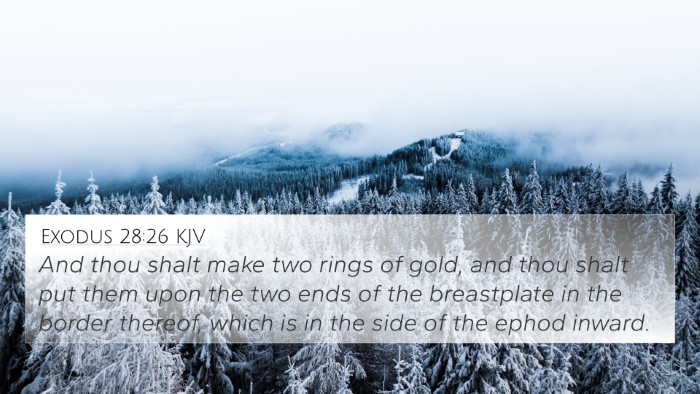Understanding 1 Samuel 14:3
Bible Verse: 1 Samuel 14:3
"And Ahijah, the son of Ahitub, Ichabod's brother, the son of Phinehas, the son of Eli, the Lord's priest in Shiloh, wearing an ephod. And the people knew not that Jonathan was gone."
Summary of the Verse
In this verse, we see a brief mention of Ahijah, a priest associated with the events surrounding Jonathan's covert actions against the Philistines. The text emphasizes the historical lineage of Ahijah and the priestly tradition, highlighting the deep-rooted spiritual heritage that influences Israel's leaders. It also indicates that the larger community was unaware of Jonathan's plans, which sets the stage for further developments.
Thematic Insights
- Priestly Lineage: Ahijah is linked to Eli's priesthood, reminding us of the history and spiritual authority that comes with it.
- Stealth and Strategy: Jonathan's secretive approach signifies the tactical ingenuity employed in the face of overwhelming odds.
- Divine Guidance: The presence of a priest during this crucial moment illustrates the importance of seeking divine favor and guidance in warfare.
Commentary Insights
Matthew Henry: Henry emphasizes the role of the priesthood in guiding the people of Israel, suggesting that Ahijah's presence illustrates a reliance on spiritual oversight even amidst political and military maneuvering. This moment signifies not only the physical bravery of Jonathan but also the spiritual preparation represented by the priest.
Albert Barnes: Barnes notes the historical significance of Ahijah's lineage. He brings attention to the continuity of the priesthood from Eli through Phinehas, underscoring the importance of priestly roles in Israel's identity and divine mission.
Adam Clarke: Clarke highlights the contextual relevance of Jonathan's actions and how the priest's presence affirms the continuity of divine communication to Israel. He also suggests that the ignorance of the people about Jonathan's actions points to a broader theme of individual faith against collective fears.
Cross-References
1 Samuel 14:3 resonates with several other biblical passages, drawing a web of insights and applications:
- Exodus 28:6-14: Details the garments of the priests, linking to Ahijah's priestly role.
- 1 Samuel 10:8: Highlights the prophetic role and divine direction in Israel's kingship.
- 1 Chronicles 6:4-15: Further outlines the lineage of priests in Israel, emphasizing the continuity from Eli to Ahijah.
- Psalm 20:7: Speaks to reliance on divine power in times of trouble, echoing Jonathan's faith.
- Isaiah 30:1: Warns of seeking counsel from the ungodly; Jonathan’s use of divine counsel stands in contrast.
- Proverbs 21:31: Reminds that the horse is made ready for the day of battle, but victory belongs to the Lord.
- John 15:5: Jesus speaks of abiding in Him, affirming the need for divine connection present in Jonathan's actions.
- Hebrews 10:19-22: Discusses the importance of priestly access to God, paralleling the role of Ahijah.
- James 1:5: Encourages believers to seek wisdom from God, resonating with Jonathan's silent faith.
- Acts 4:31: Highlights the empowerment of believers through prayer, akin to Ahijah's presence during Jonathan’s mission.
Conclusions
This verse connects rich historical context with profound spiritual truth. Through the lens of commentaries and cross-references, we can understand that the events unfolding in 1 Samuel 14 are not merely historical records; they are layered with theological significance that invites readers to explore the deeper implications of faith, leadership, and divine providence. Comprehensive studies using various tools for Bible cross-referencing can illuminate these connections further, enhancing our biblical understanding.
